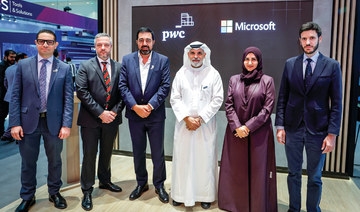RIYADH: Saudi Arabia has witnessed a surge in the ranking of both its aviation and maritime networks, reflecting a boost in the Kingdom’s global connectedness.
Saudi air connectivity has jumped to 13th place from 27th in 2019 as the Kingdom currently connects 131 destinations worldwide, the latest index published by the International Air Transport Association showed.
This comes within just over two years of the Saudi Cabinet’s approval to launch the Civil Aviation Sector Strategy, which aims to enhance the Kingdom’s air connectivity to 250 destinations worldwide, transporting 330 million passengers by 2030.
It also intends to serve as a global logistics hub by doubling its air cargo capacity to 4.5 million tons by the end of this decade.
The Kingdom’s maritime connectivity ranking by the UN also increased in the second quarter of 2023, advancing to the 16th position, reported the Saudi Ports Authority known as Mawani.
Saudi Arabia scored 76.16 points within 187 countries this quarter, according to the UN Conference on Trade and Development Liner Shipping Connectivity Index.
The report added that 97 Saudi ports linked the Kingdom with approximately 348 ports around the world.
Minister of Transport and Logistics Services Saleh Al-Jasser noted that such progress is enabled by the support of the transport and logistics system and the ports sector.
It also helps consolidate Saudi Arabia’s position on the global maritime map, added Al-Jasser, who is also chairman of Mawani’s board of directors.
Saudi Arabia’s air traffic witnessed a strong rebound during the first four months of 2023, fueled by significant growth in the Saudi travel and tourism sector, a report released by the General Authority of Civil Aviation in May showed.
According to the report, Saudi air traffic recorded a 42 percent increase in the number of passengers to reach 35.8 million in the first four months of 2023, compared to the same period last year.
The Kingdom’s airports also witnessed a marked increase in air traffic during 2023 compared to pre-pandemic levels, growing at a rate of 6.2 percent compared to the same period in 2019.
Saudi Arabia also ranked seventh among the G20 members in aviation safety with a 94.4 percent score on the International Civil Aviation Organization safety audit report.
In a further boost to the aviation industry, Crown Prince Mohammed bin Salman earlier this year launched a new airline, Riyadh Air, which the Public Investment Fund owns.
The Kingdom also achieved another milestone in line with its National Aviation Strategy by launching a project to develop and expand Al-Ahsa International Airport and expand its capacity by 250 percent to reach 1 million passengers annually.





















